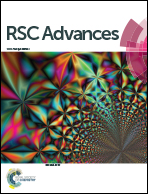Effect of microwave radiation on the activity of catalase. decomposition of hydrogen peroxide under microwave and conventional heating
Abstract
The effect of microwave heating (MW) on the activity of a well-known enzyme (catalase) was elucidated by examining the catalase-assisted decomposition of hydrogen peroxide (H2O2 at various heating times (0 to 12 min)). For comparison, conventional water bath heating (WB) was also examined under identical temperature conditions. Microwave radiation had a positive effect on the activity of catalase only over a very short time (less than 3 min), presumably because of the possible disruption of the catalase structural integrity under microwave irradiation at longer times (a negative influence) as evidenced by Gel Permeation Chromatographic (GPC) and MALDI Time-Of-Flight-Mass-Spectrometric (MALDI-TOFMS) analyses. The effect of temperature on the catalase activity was also probed at 39, 37, and 25 °C. Results indicate that utilizing a hybrid heating approach with conventional heating (water bath) coupled to microwaves was more effective provided microwave irradiation was carried out for a short time (also less than 3 min). Moreover, it is demonstrated that microwave heating in degrading hydrogen peroxide was most effective when the enzymatic reaction was carried out at a lower temperature, particularly at 25 °C.


 Please wait while we load your content...
Please wait while we load your content...